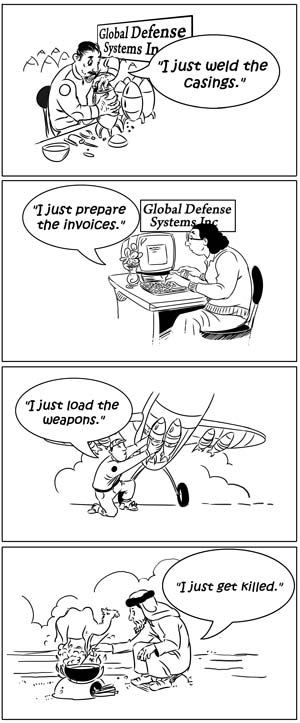The Case for Peace

Inspiration: Jules Feiffer; artwork: Randanigala.
- Aggression is not inevitable
Konrad Lorentz (“On Aggression”), Desmond Morris (“The Naked Ape”) and Robert Ardrey (“The Territorial Imperative”) all promoted the idea of man’s inherent aggressiveness, and much of modern culture (“2001”, “Lord of the Flies”) does so too. However, aggression is not an urge like hunger that builds up and needs an outlet; rather, it is circumstantial. Research by Frans de Waal showed that nominally aggressive rhesus monkeys reared with more tolerant stumptail macaques acquired greater reconciliation skills. The many instances of inter-species bonding point beyond Tennyson’s “nature, red in tooth and claw”. - The world is becoming more peaceful
In Steven Pinker’s TED talk and book he produces considerable data to show that violence has decreased across millenia, across centuries and across decades. - People don’t want to fight
Military desertion is a major problem for armies, and at times exceeds the casualty rate. People have to be trained to kill others; it does not come naturally. - The Internet can change everything
We do not trust what is different, uncertain, unknown. This fear of otherness is used to motivate people to fight. The Internet is the Gutenberg Press of today; it is the tool that is evaporating that argument. It does this in two ways: by showing us that other people are like us too, and by allowing ideas to flow directly between people, thus undermining the arguments of the warmongers. - Culture can change
None of this is to prophesy a perfect peace on earth. There will always be arguments and fights. But just as we have sexual urges yet consider rape unacceptable, so we must treat conflict as an unacceptable response to our aggressive impulses. - Other voices
The FAQ by A Year Without War.